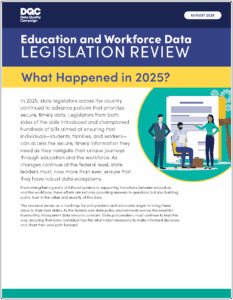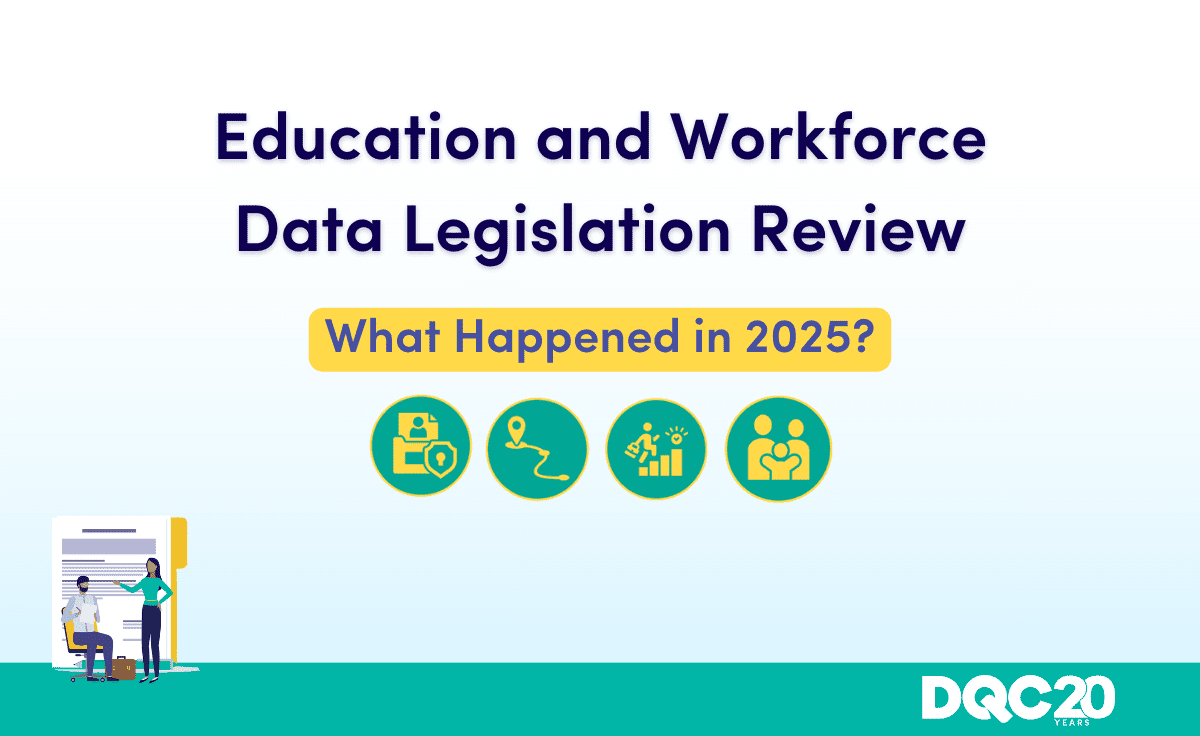 In 2025, state legislators across the country continued to advance policies that prioritize secure, actionable data. Legislators from both sides of the aisle advanced hundreds of bills designed to ensure that students, families, workers, and their communities have access to information they need to navigate their education and workforce journeys. From strengthening early childhood data systems to supporting transitions between education and the workforce, these efforts are not only providing answers to questions but also building
In 2025, state legislators across the country continued to advance policies that prioritize secure, actionable data. Legislators from both sides of the aisle advanced hundreds of bills designed to ensure that students, families, workers, and their communities have access to information they need to navigate their education and workforce journeys. From strengthening early childhood data systems to supporting transitions between education and the workforce, these efforts are not only providing answers to questions but also building
public trust in the value and security of this data.
This year’s review highlights four main themes we saw in states:
People Need to Be Able to Trust That States Are Using Their Data Responsibly
Trust in data doesn’t happen automatically—it must be earned and maintained. In 2025, several states took steps to establish clear and accountable governance structures; create meaningful opportunities to build trust; and enact strong, comprehensive privacy protections. Together, these elements lay the groundwork for systems that people can rely on to support their education and career goals.
People Need Data to Make Decisions About What Comes After High School
Regardless of which pathway from high school into postsecondary education they choose, right now too many students cannot weigh all of their options side by side to decide what’s right for them. In 2025, several states took meaningful steps to reduce barriers between high school and college—recognizing that students need earlier, clearer information about their options.
People Need Information to Navigate Their Careers With Confidence
State data systems are essential to helping people understand how their education and training connects to job opportunities—and whether those opportunities align with their goals. At the same time, policymakers need access to outcomes data to evaluate whether education and training programs are delivering real value. In 2025, state leaders took action to close the gap between education and employment, using data to support informed choices, strengthen career pathways, and improve economic mobility.
People Need Early Childhood Data Systems that Work for Families
Families with young children rely on many programs to support their children’s healthy development, but limited access to information makes navigating these systems and understanding what they’re eligible for hard for families. At the same time, early childhood providers face burdensome data reporting requirements that don’t support their work, and policymakers often lack the data they need to invest resources where they’re most needed. In 2025, state leaders took steps to provide families and communities with more information on early child care and education options.
Together, these themes show that state legislators are laying the foundation for data systems that are transparent, connected, and centered on the needs of people. As state and federal policy environments continue to evolve, the need for trustworthy, actionable data remains constant—and states should continue to lead the way.


